Will Collier: 'Under Borthwick, I really could have added to the squad'

Regrets. Will Collier will no doubt have a few when his playing career finally ends. Everyone does. But, then again, as the song goes and despite English rugby media proclaiming him to be a Test prop that got away, too few to mention.
“I’d rather be the guy people say should have played more, than the guy who they asked, ‘how the hell did he get all those caps?’,” the ex-Harlequins tighthead said, when asked about the discussions of what England might miss following his decision to move to Top 14 side Castres Olympique on a three-season deal.
“It’s all hypotheticals and what-ifs,” he insisted. “Eddie [Jones] went for a different demographic of prop, and I accepted that. We had a few chats – I got my caps under Eddie, and I loved being in that England environment.
“I felt under Steve [Borthwick], I really could have added to the squad, specifically in the scrum.
“But, I’m pretty content and at peace with how everything turned out.”
That’s that, then. Columnists might pen chin-stroking coulda-shoulda articles over what might have been, but Collier isn’t about to lose any sleep over an England dream that has faded to black.
He is, by common agreement and his own assessment, a ‘prop’s prop’ – “I’m a relatively simple player, scrum and defence for me,” he said. Wry self-deprecation aside, the message behind the modesty gets to the heart of his game.
“When Eddie [coached England], I tried to change the way I played. I lost a lot of weight, tried to become more dynamic, more ball carrying. Then I reverted to type in the last four years to go back to what I love doing and doing best.”
What Collier does best might not have been what England wanted, and it’s open to debate as to whether it’s what England needed. But it caught the eye of tighthead-hunting sides in the Top 14.
And, after more than a decade at Harlequins, he opted for self-imposed exile, joining five-time French champions Castres on a contract through to 2027.
France was always on the cards. “It was a dream to play in the Top 14, ever since I was young,” Collier said. “I’ve always wanted to come out here.
“My last few contracts at Quins, I’d kept an ear to the ground to see if there was much going on in France, but I [also] wanted to stay at Quins and try to win more silverware and get more England caps. That didn’t come to fruition at all.”
Smalltown boys Castres aren’t one of the glamour clubs of French rugby, for all that they’re one of just three sides – with Toulouse and Clermont – to have remained in the top division throughout the professional era.
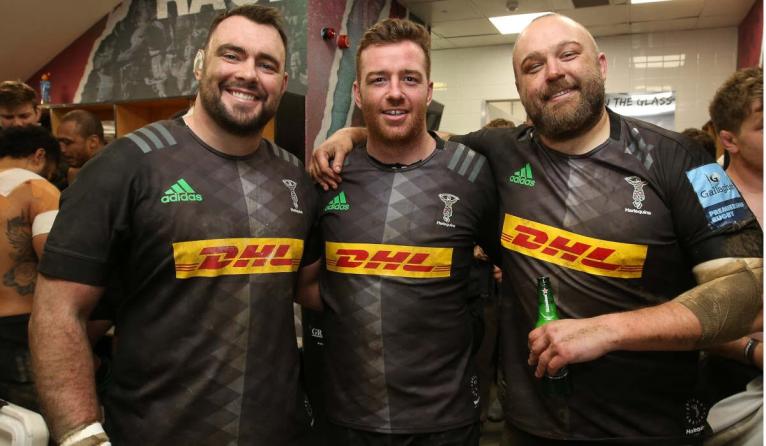
Collier, however, is unfazed by reputations. “I’ve played against Castres a few times and knew it was a rugby-mad town. I had a long chat with [manager] Jeremy [Davidson] and [director of rugby] Matthias [Rolland]. They gave me their vision and talked about the history of the club and what they’re looking for from me, and it just felt like a perfect fit.”
He remembered his first senior game, a preseason outing in 2012, was against Castres, which featured a number of players now on the French side’s staff – scrum coach Karena Wihongi, then a tighthead; lineout coach Yannick Caballero, who was on the flank; and hooker-turned team manager Marc-Antoine Rallier; as well as ex-second row Rolland.
Even so, leaving Harlequins after more than a decade’s service must have been difficult?
“Strangely, it was incredibly easy,” Collier said. “I’m really grateful for the support I had. Primarily my wife, who’s made a huge decision to uproot the family and move to a small town in France, slightly different from our lives in southwest London.
“I explained the situation to Quins … [they] said, ‘we’d obviously love you to stay, but we respect your decision and we’ll support it’.
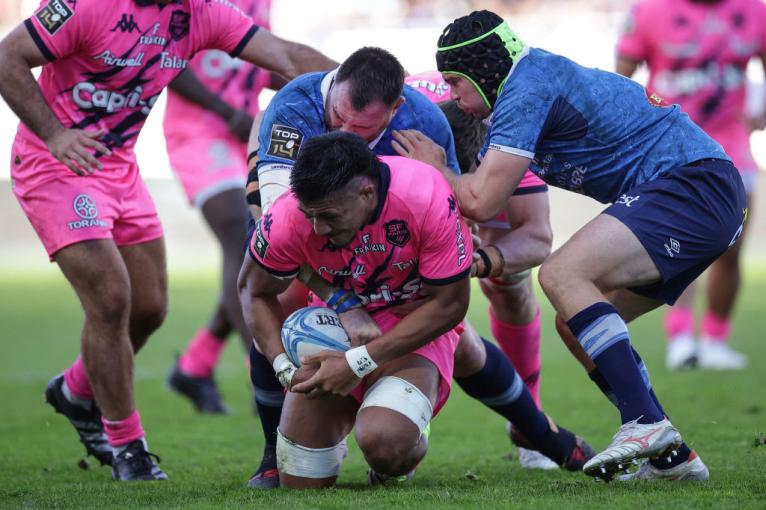
“I’ve said all along I’ve always wanted to go and play in France, so it wasn’t a shock to them. I wouldn’t have gone to another Premiership club. I was only ever going across the Channel.”
Castres, too, made it easy for the canniest of their summer signings to settle. “Because I knew I was coming relatively early, we had plenty of time to figure everything out,” Collier said. “We found a great house three minutes from [the club’s training ground at] Levézou.
“It’s a really special place with the families, and it’s such a small town. The boys are so close and so tight. You need anything, you can call anyone, and they’ll be around at the drop of a hat to help out.”
Two close-range tries in five outings so far for Castres is 50 per cent of Collier’s try total in more than 200 matches for Harlequins – “I probably got more metres in the ones I scored for Quins!” – but the day job always takes precedence.
“I knew the players and the strong scrummaging unit [Castres] had – Quentin Walcker, Loîs Guerois-Galisson, Antoine Tichit are all really strong piliers gauche [loosehead props].
“Part of me was slightly worried when Tom [Staniforth] got injured because I know he’s such a huge part of the squad and a big presence in the scrum.”
Australian second row Staniforth is out for most of the season as he recovers from surgery on an ankle injury.
“But it speaks volumes to the depth we have – we’ve got Flo [Florent Vanverberghe], who is a monster, a machine. We’ve got Paul [Jedrasiak], from Clermont, who can step in and do a great job. And we’ve got Naka [Leone Nakarawa], who’s one of the most special players I’ve ever played with.
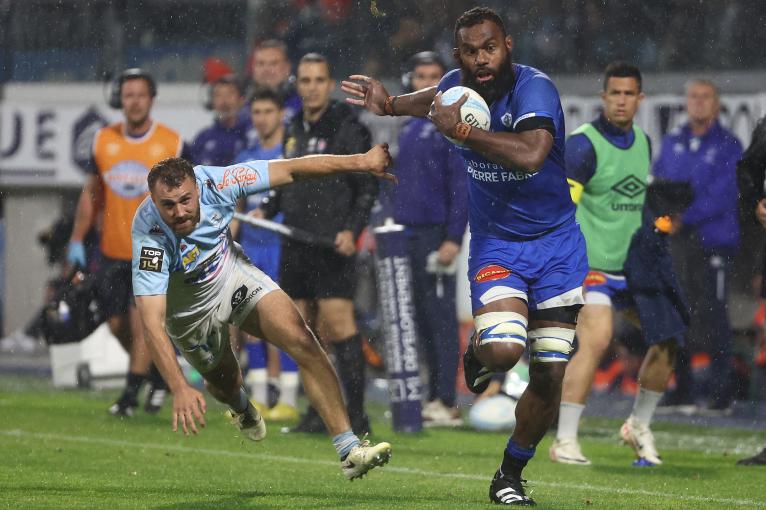
The players in the pack are one thing. More important is how they work as a unit. “In a scrum, it’s a mindset as much as it is anything else,” Collier, a real student of his art, said.
“We did a lot of work in pre-season, a lot of long sessions. You hear the South Africa boys talking about the work they do with their scrums and the passion they put into it. I feel that was replicated in the training we did [at Castres].
“We’re starting to see the dividends of that work now. Karena Wihongi is a brilliant scrum coach. He’s really technical in the areas he targets. He does a lot of work with the back five.
“We’ve got a brilliant running eight, Abraham Papali’i, who has a tendency to want to break free. But Karena had the back five pushing as if they were the front row on a scrum machine, and Abraham had to control the ball at the base mimicking us going forward – I haven’t seen that before.
“That kind of work leaks through. We’re going to go forward – and those second rows also get a taste of what it’s like being in the front where they’re engaged into that machine. And Abraham’s replicating dribbling the ball forward.
“We’re not going to do it every time. We’re going to target scrums here and there, but it’s a really strong scrummaging unit and I’m really pleased with where we’re at.”
The players. The pack. But there’s still more to a long and winding Top 14 campaign. “Consistency’s hard, and momentum,” Collier said. “But what we’ve got in our squad is a group of absolute battlers.
“I think the prime example of that is [flanker] Baptiste Delaporte. You watch him play, he scraps for every inch. You saw that [against Stade Francais] when we had the red card.
“They use the phrase, ‘Chien! Chien!’. It’s a dog fight and it’s infectious. That frenzy, it filters through. It’s an incredible feeling.”
Adrea Cocagi’s sending off after 20 minutes of the match, for an elbow into the face of Stade’s Samuel Ezeala, might have derailed Castres in previous seasons. But they won 35-13 despite playing 60 minutes with 14. They never looked like losing.
After seven rounds – heading to one-third of the way through the 26-round campaign – Castres were sixth, with 19 points, and had picked up at least one league point in all but one match.
Top six and a place in the play-offs is the minimum Castres – who boasted the second-best attack in the league on points scored after seven games – are aiming for, Collier insisted.
“That was part of the draw, to be honest, when I spoke to Matthias and Jeremy,” he said. “They said, ‘we’re, a small club, a small town, but we’re in it to win it’.
“It’s not like we’re surviving – the recruitment and the players they’ve got and the way we’re playing backs that up. The minimum is top six. I’m under no illusions how tough it is and how competitive this league is – one point here, one point there and you miss out just like [Castres] did last year.”
Outside rugby, there’s plenty in and around the Tarn town to turn the head of the wine buff and gastronomic Collier, who has a share in a restaurant in Bristol. In a recent interview with French website Rugbyrama, he extolled the virtues of the town’s markets. The town is also on the fringes of the little-known and under-rated Gaillac wine region.
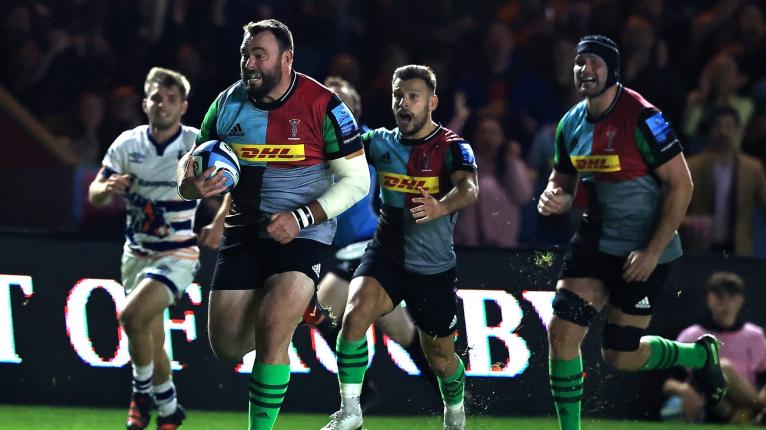
He hasn’t yet had the chance to do – in his own words – ‘a deep dive analysis’ of the wines produced on his doorstep. But, he added, “I’m slowly picking up bits and bobs and finding some good domains and good vineyards around here.”
Maybe one or two bottles will make their way to his Bristol restaurant, which he founded with ex-Quins colleague Olly Kohn – who he described as ‘a bit of a mentor’.
“He’s one of the other reasons I’m here,” Collier said. “He said, ‘Mate, you’ve got to get out there. You’re going to love it. It’s made for you’.”
So, yes, scrum scholar Will Collier will have a few regrets when he finally calls it a day. Swapping the Premiership for the Top 14, exchanging London for Castres, will probably not be one of them.




































































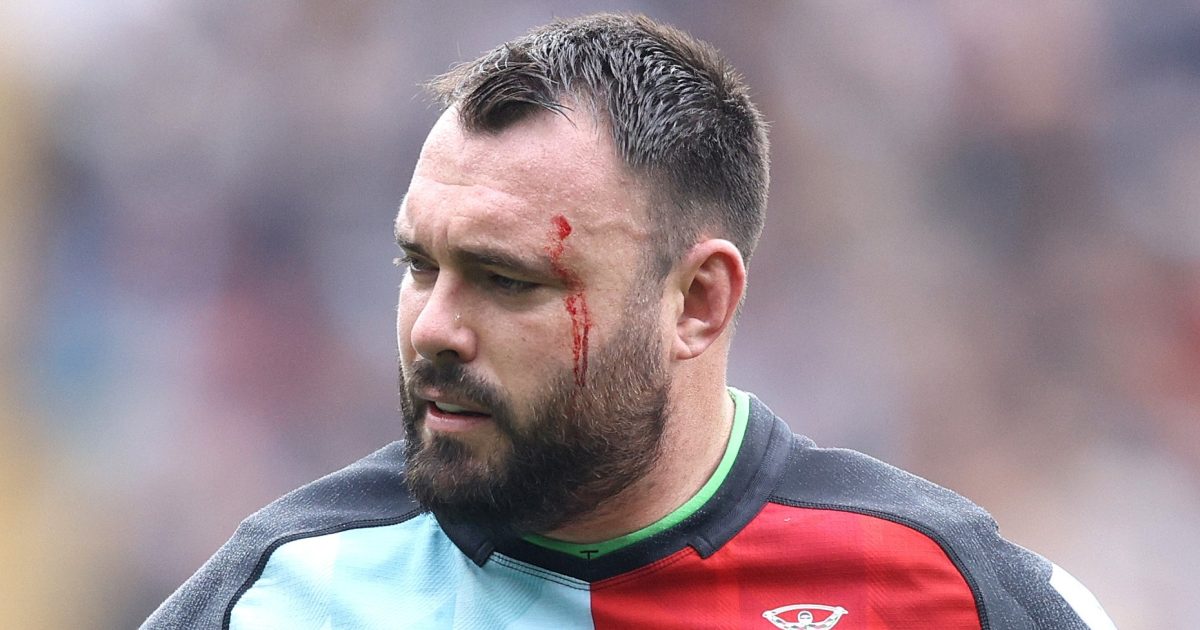

Definitely could have done a job for England, a great scrummager and by the sound of things a decent bloke.
Never understood the English obsession with props who can run and offload at the expense of scrummaging ability. It hasn't paid dividends at the RWC for us!
A prop being able to run or hit a couple of extra rucks is unlikely to win test matches, if their scrumming isn't good enough that definitely will lose test matches. Pick your best scrummagers every time, if they add something else, that's a bonus.
It got England to a final and a semi. It was also a strategy for New Zealand. Its also (1) not true that Kyle Sinckler was especially bad in the scrum, and (2) its not true that the team that loses the scrum always loses the match. Defence, kicking, and lineout are all much more important.